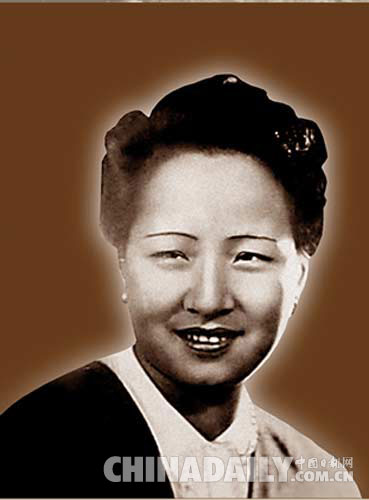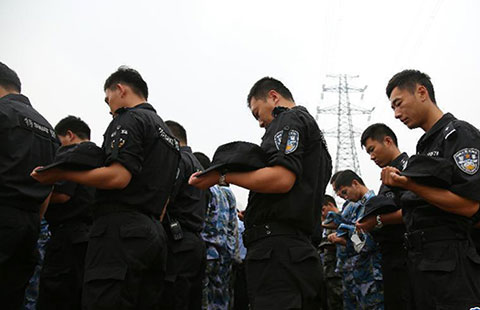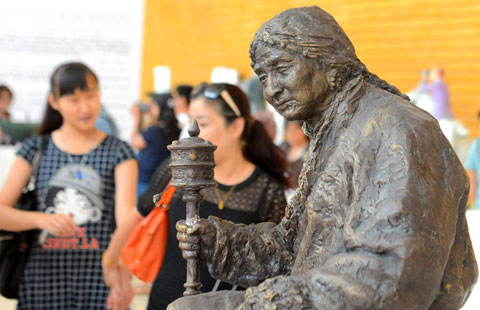Belgium's 'Chinese mother' remembered by history
Updated: 2015-08-19 15:39
(chinadaily.com.cn)
|
|||||||||
|
 |
|
Qian Xiulin. [Photo exclusively provided to chinadaily.com.cn] |
Qian Xiulin, a Chinese woman who had moved to Belgium in 1929, was hailed as Belgium's "Chinese mother" after saving the lives of nearly 100 Belgians during Nazi Germany's occupation from May 1940.
Born in Yixing, East China's Jiangsu province, Qian showed great interest in chemistry at a young age and dreamed of becoming a scientist, having been inspired by Marie Curie .
She went to Belgium to pursue her dream and studied at the University of Leuven, the country's best-known college.
Nazi Germany began lightning strikes on the Low Countries in 1940 and Belgium was soon occupied and anti-Nazi activities in the country began. A youth named Roger was captured after destroying a German railway and was sentenced to hang.
On hearing the news Qian decided to do whatever she could to save him. Knowing that one of Germany's top generals in Belgium, Alexander von Falkenhausen, was a friend of her cousin, she begged him to help.
To everyone's surprise, Falkenhausen nodded and Roger was released a few days later. Qian was deemed a kind-hearted Chinese woman and hailed as a hero by local people.
In 1944, the German army arrested 97 young Belgian men as revenge for the killing of three members of the Gestapo and were about to execute them.
Qian, who was pregnant at the time, played the role of savior once more, her persistence and sense of justice convincing Falkenhausen who accepted her pleas and all 97 were freed.
The Belgian government awarded Qian the Medal of National Hero after the war and local people named a road in her city "Madame Qian Road".
She moved to Brussels after the war and led a low-profile life.
The Chinese Schindler wanted to live as a normal person rather than a hero and said she had forgotten what she did during the war when asked. Compared with the dark and distorted period, she preferred to recall happy days during her life such as romance and family affection.
Her heroic deeds have never been forgotten by history and in 2001 a TV series, A Chinese Woman at Gestapo Gunpoi, brought Qian's story to the screen after half a century.
The photo is exclusively provided to chinadaily.com.cn by Museum of the War of Chinese People's Resistance Against Japanese Aggression and cannot be used without permission.

 The changing looks of Beijing before V Day parade
The changing looks of Beijing before V Day parade
 Nanjing displays ancient marriage, divorce certificates
Nanjing displays ancient marriage, divorce certificates
 Top 10 Android app stores in China
Top 10 Android app stores in China
 Ceremony held to mourn victims of Tianjin blasts
Ceremony held to mourn victims of Tianjin blasts
 Silk Road city displays sculptures at exhibition
Silk Road city displays sculptures at exhibition
 Top 10 companies with the most employees
Top 10 companies with the most employees
 Men in Indonesia climb greased poles to win prizes
Men in Indonesia climb greased poles to win prizes
 In pictures: Life near Tianjin blasts site
In pictures: Life near Tianjin blasts site
Most Viewed
Editor's Picks

|

|

|

|

|

|
Today's Top News
Fitch warns insured losses from Tianjin explosions could reach $1.5b
Conflicting reports on possible Abe trip
Hillary Clinton breaks with Obama on Arctic oil drilling
At UN, China backs regional peace efforts
Man in yellow shirt is Bangkok bomber: Police
Beijing dismisses reports of Abe's China visit in September
Anti-corruption campaign 'good for China, US'
Police: Man in yellow shirt is Bangkok bomber
US Weekly

|

|







